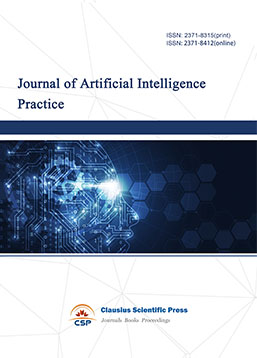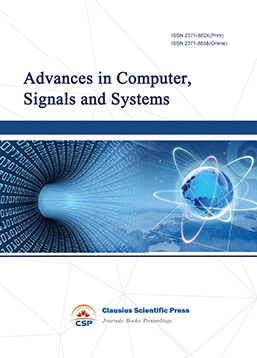Library Information Resource Management Based on Metadata Storage
DOI: 10.23977/jwsa.2022.040102 | Downloads: 33 | Views: 3680
Author(s)
Gege Wang 1
Affiliation(s)
1 Jiangxi University of Applied Science, Nanchang 330100, Jiangxi, China
Corresponding Author
Gege WangABSTRACT
With the improvement of science and technology and the deepening of informatization, there are still some problems in the management of information resources in libraries. In order to realize the effective management and informatization management of its resources, an information resource management system of metadata warehouse is proposed. Using metadata warehousing, through metadata collection, sorting, aggregation, and storage, various classification systems have been established, and functions such as resource navigation, advanced retrieval, personalized services, and user rights management have been constructed, so that users can realize the unified retrieval, browsing and utilization of library resources. The structural form of metadata realizes the systematization of information resource management and makes its data description more standardized. At the same time, metadata effectively connects the data through the hierarchical structure and realizes the storage of different data, so as to ensure the efficient retrieval of information by users. At present, many libraries simply provide the entrance address directly to users through database list for a large number of network databases, but the efficiency is not high. Therefore, it is necessary to introduce metadata warehousing technology.
KEYWORDS
Metadata, Warehousing, Information resource managementCITE THIS PAPER
Gege Wang, Library Information Resource Management Based on Metadata Storage. Journal of Web Systems and Applications (2022) Vol. 4: 7-10. DOI: http://dx.doi.org/10.23977/jwsa.2022.040102.
REFERENCES
[1] Zhang He. Research on the Application of Metadata in Library Information Management [J]. Journal of Beijing Institute of Graphic Communication, 2017, 25(4):3.
[2] Du Zhuoqian. Application of DC Metadata in the Construction of Local Characteristic Audio Resources in Libraries--Taking the “Sound of Sichuan Reading” project of Sichuan Provincial Library as an example [J]. Sichuan Library Journal, 2020(6):5.
[3] Xu Lei. Library system evolution and its metadata management [J]. Library Forum, 2021, 41(10):9.
[4] Xu Lei, Xia Cuijuan. Metadata management of the third-generation library service platform: Taking FOLIO's Codex solution as an example [J]. Chinese Library Journal, 2020, 46(1):15.
[5] Sun Jinjuan, Zheng Jianming. Theoretical Research on Collection Revealing of University Libraries Based on Smart Library Platform [J]. Library Science Research, 2019(11):7.
[6] Liu Shujuan. Research and Implementation of Metadata Extraction Technology for Scientific and Technological Documents in University Libraries [J]. Lantai World, 2018(4):4.
[7] Han Shanshan, Wang Xiao. An Analysis of the Information Resources Sharing Mechanism of Chinese Libraries [J]. Science and Technology Wind, 2017(8):1.
[8] Mu Junni, Yuan Lianrong, Yang Mei. Thinking and Exploration of Information Resources Construction of University Libraries under the Environment of “Internet and Double One” [J]. Library World, 2019(5):5.
[9] Zeng Liying, Liu Ziheng, Zeng, et al. The Development Status and Thinking of Global University Scientific Research Data Repository [J]. Library Construction, 2018(3):7.
[10] Deng Shengli, Xia Sudi. A Comparative Study on the Open Data Platforms of Chinese and American Urban Governments [J]. Library Journal, 2019, 38(6):13.
| Downloads: | 1354 |
|---|---|
| Visits: | 82825 |
Sponsors, Associates, and Links
-
Power Systems Computation

-
Internet of Things (IoT) and Engineering Applications

-
Computing, Performance and Communication Systems

-
Journal of Artificial Intelligence Practice

-
Advances in Computer, Signals and Systems

-
Journal of Network Computing and Applications

-
Journal of Electrotechnology, Electrical Engineering and Management

-
Journal of Wireless Sensors and Sensor Networks

-
Journal of Image Processing Theory and Applications

-
Mobile Computing and Networking

-
Vehicle Power and Propulsion

-
Frontiers in Computer Vision and Pattern Recognition

-
Knowledge Discovery and Data Mining Letters

-
Big Data Analysis and Cloud Computing

-
Electrical Insulation and Dielectrics

-
Crypto and Information Security

-
Journal of Neural Information Processing

-
Collaborative and Social Computing

-
International Journal of Network and Communication Technology

-
File and Storage Technologies

-
Frontiers in Genetic and Evolutionary Computation

-
Optical Network Design and Modeling

-
Journal of Virtual Reality and Artificial Intelligence

-
Natural Language Processing and Speech Recognition

-
Journal of High-Voltage

-
Programming Languages and Operating Systems

-
Visual Communications and Image Processing

-
Journal of Systems Analysis and Integration

-
Knowledge Representation and Automated Reasoning

-
Review of Information Display Techniques

-
Data and Knowledge Engineering

-
Journal of Database Systems

-
Journal of Cluster and Grid Computing

-
Cloud and Service-Oriented Computing

-
Journal of Networking, Architecture and Storage

-
Journal of Software Engineering and Metrics

-
Visualization Techniques

-
Journal of Parallel and Distributed Processing

-
Journal of Modeling, Analysis and Simulation

-
Journal of Privacy, Trust and Security

-
Journal of Cognitive Informatics and Cognitive Computing

-
Lecture Notes on Wireless Networks and Communications

-
International Journal of Computer and Communications Security

-
Journal of Multimedia Techniques

-
Automation and Machine Learning

-
Computational Linguistics Letters

-
Journal of Computer Architecture and Design

-
Journal of Ubiquitous and Future Networks


 Download as PDF
Download as PDF